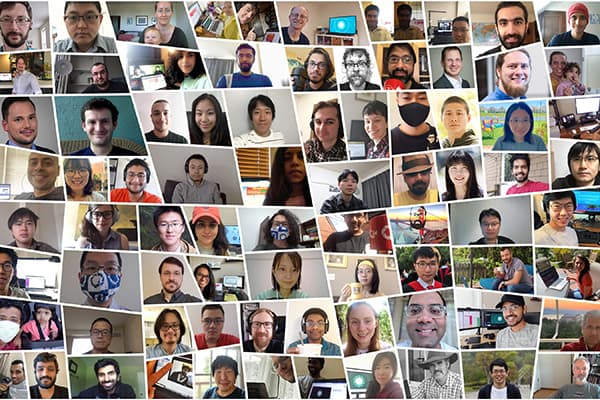Pandemic drives successful shift of international conference at WashU to virtual
When the COVID-19 pandemic forced large group meetings to cancel, conference planners moved things online

Ayan Chakrabarti had been planning to host the IEEE International Conference on Computational Photography (ICCP) at the McKelvey School of Engineering for a year, but the COVID-19 pandemic threw a wrench in those plans. Instead, he was able to host it virtually and without cost to attendees, which allowed more than 800 to participate, rather than the usual 250 that attend the in-person conference.
Chakrabarti, assistant professor of computer science & engineering, general chair and one of three program chairs for the annual conference, held April 24-26, and the conference planning team wanted it to be as close to a regular in-person session as possible, which typically includes researchers presenting their work and a live moderated question-and-answer session. To do this virtually, each presenter submitted a pre-recorded 12-minute video of their presentation. During the live session, these videos were streamed live on YouTube, interspersed with 3 minutes of live questions and answers broadcast from a Zoom meeting with an author and a session moderator present. The moderator asked authors questions that attendees submitted using the live chat feature on YouTube.
Despite making the change from in-person to virtual with little more than a month's notice, Chakrabarti said the feedback from those who attended was positive.
"Several members of the research community said this was a great experience," Chakrabarti said. "We got a fair amount of interaction in our live sessions, in some cases, more so than in live conferences. Typing questions in a chat window seems to have a lower barrier than walking up to a microphone to ask them in a physical meeting."
Chakrabarti said one of the biggest challenges of a virtual conference is dealing with the different time zones across the world.
"We tried to make sure all of the time zones in North America were accounted for," he said. "Our sessions began at 10:30 a.m. and ended at 5:30 p.m. Some session times didn't work for those in Europe or Asia, but all of our sessions were recorded and put on YouTube. We had a Slack channel set up for the conference so that people could ask questions at there or in YouTube comments anytime after the session."
Attendees also took advantage of technology to hold virtual happy hours on Zoom, to network and have social interaction using the Slack channel, Chakrabarti said.
Based on the success of this virtual conference, the conference steering committee is considering a hybrid model for future conferences given the increased participation and engagement at the virtual conference and potentially restricted international travel or limited travel budgets in the future.
"We have always put our videos online after a session, but what we haven't had before was the interaction with the people who weren't attending the conference in person," he said. "We want as many people to attend as possible, so we're talking about a possible hybrid model for next year, since we don't know if international travel will open up."
Chakrabarti said he and the planning team received many questions from others planning virtual conferences, so he drafted a document describing how the ICCP conference was carried out. It is publicly available at https://iccp2020.engr.wustl.edu/vsetup.html.



